We support promising approaches for solving key health extension areas via financial support, mentorship, and connection to relevant researchers, founders, and funders. Find our three current accelerator projects and a few of our mentors below.
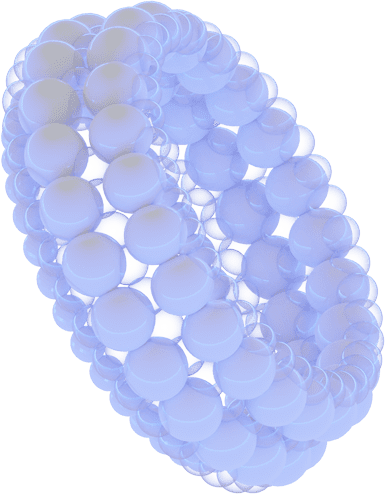
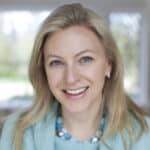
Sonia Arrison is a best-selling author, analyst, entrepreneur, and investor. She is founder of 100 Plus Capital, co-founder of Unsugarcoat Media (acquired by Medium), and associate founder and advisor to Singularity University in Mountain View, California. Her research focuses on exponentially growing technologies and their impact on society. Her most recent book, 100 Plus: How the Coming Age of Longevity Will Change Everything, From Careers and Relationships to Family and Faith, addresses the social, economic, and cultural impacts of radical human longevity. It gained national best-seller status and keeps Sonia busy speaking all over the world. Sonia is a Board Member at the Thiel Foundation, Foresight Institute, and Woodland School. She is also a Senior Fellow at the Fraser Institute in Vancouver, British Columbia, and author of two previous books (Western Visions and Digital Dialog). She was previously a Director and Senior Fellow in Tech Studies at the Pacific Research Institute and a columnist at TechNewsWorld.
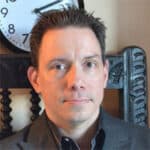
Dr. Horvath is an aging researcher and bioinformatician whose research ranges from epidemiology, chronic diseases, epigenetics, to systems biology. He developed systemic biologic approaches such as weighted gene co-expression network analysis. He works on all aspects of biomarker development with a particular focus on genomic biomarkers of aging. He developed a highly accurate multi-tissue biomarker of aging known as the epigenetic clock. Salient features of the epigenetic clock include its high accuracy and its applicability to a broad spectrum of tissues and cell types. He develops and applies methods for analyzing and integrating gene expression-, DNA methylation-, microRNA, genetic marker-, and complex phenotype data. His lab members apply and develop data mining methods to study a broad spectrum of diseases, e.g. aging research, cancer, cardiovascular disease, HIV, Huntington’s disease, neurodegenerative diseases.
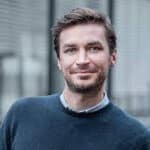
Nils is a serial entrepreneur and company builder with a long-standing passion for health and biomedicine. At Apollo, Nils brings deal making skills, his impeccable business sense, and his expertise in growing early stage startups. Nils founded company builder and investor TruVenturo in 2010, and he has taken part in over 30 financing rounds as an investor or co-founder among the companies he has cofounded. Of these, three have attained valuations over $100M, having attracted capital from top venture capital companies such as Insight Venture Partners, Highland Capital, and Harbourvest. Nils sits on the boards of multiple companies in his portfolio, helping to push them rapidly towards inflection points by focusing his teams towards only those activities that generate shareholder value. Nils has studied business in Hamburg and at UC Santa Barbara (UCSB) in California. He also completed the EO Entrepreneurial Master’s Program at MIT.
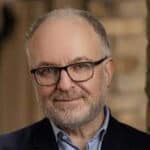
Andrew J. Scott is Professor of Economics at London Business School having previously held positions at Oxford University, London School of Economics and Harvard University. His work focuses on the economics of longevity and he is the co-author of “The 100 Year Life” and “The New Long Life”. He was Managing Editor for the Royal Economic Society’s Economic Journal and Non-Executive Director for the UK’s Financial Services Authority 2009-2013. He is currently on the advisory board of the UK’s Office for Budget Responsibility, the Cabinet Office Honours Committee (Science and Technology), co-founder of The Longevity Forum, a member of the WEF council on Healthy Ageing and Longevity and a consulting scholar at Stanford University’s Center on Longevity. Andrew is also the recipient of an ESRC grant for researching the economic longevity dividend.
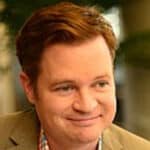
Jim has advised, invested in, and nurtured more than seventy science and technology companies. While running the Thiel Foundation, he co-founded the Thiel Fellowship and helped create deep science fund Breakout Labs. Thiel Fellows have created more than $90 billion in equity value by founding companies including Freenome, Luminar, Figma, Upstart, OYO, Ethereum, Workflow, Fossa, and the Longevity Fund. Before moving to California, Jim helped lead the U.S. Department of Health and Human Services as the principal associate deputy secretary. His responsibilities included overseeing policy and regulations at NIH, FDA, and CDC and he led two major reforms of FDA. He also supported the creation of the Armed Forces Institute for Regenerative Medicine, served on the steering committee of the Biomedical Advanced Research and Development Authority, and represented the United States on the U.S. delegation to the World Health Assembly.
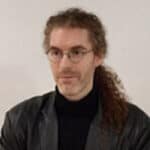
Reason is co-founder and CEO of Repair Biotechnologies. He is the founder and writer of Fight Aging!, a leading news website in the biotech community. Reason is also an active angel investor in the space. Previously, Reason was principal software engineer at technology startups. Reason has Masters degrees in Space Physics and Astrophysics.
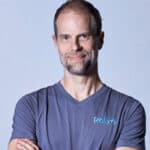
Following an academic background at Harvard, MIT, and Caltech, being an inventor on over 100 patents and applications, founding two prior companies with a combined 185 employees, spending 2 years as a part-time partner at Y Combinator, investing in and advising numerous biotechs, and publishing a Science paper in biophysics, Joe is now the CEO of Retro Biosciences, which uses high-throughput, high-dimensional approaches to develop therapies for diseases driven by the biology of aging.
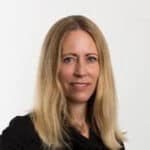
Tina is an ecosystem architect and works with organisations in both private and public sectors to accelerate innovation and transform health with sustainable impact at scale.

Morgan Levine is a ladder-rank Assistant Professor in the Department of Pathology at the Yale School of Medicine and a member of both the Yale Combined Program in Computational Biology and Bioinformatics, and the Yale Center for Research on Aging. Her work relies on an interdisciplinary approach, integrating theories and methods from statistical genetics, computational biology, and mathematical demography to develop biomarkers of aging for humans and animal models using high-dimensional omics data. As PI or co-Investigator on multiple NIH-, Foundation-, and University-funded projects, she has extensive experience using systems-level and machine learning approaches to track epigenetic, transcriptomic, and proteomic changes with aging and incorporate this information to develop measures of risk stratification for major chronic diseases, such as cancer and Alzheimer’s disease. Her work also involves development of systems-level outcome measures of aging, aimed at facilitating evaluation for geroprotective interventions. A number of the existing biological aging measures she has developed are being applied in both basic and observational research.
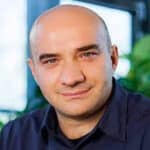
Dr. Gordan Lauc is Professor of Biochemistry and Molecular Biology at the University of Zagreb Faculty of Pharmacy and Biochemistry. His laboratory performed the first large scale studies of the human plasma glycome (in 2009) and human IgG glycome (in 2011), which were the basis for the subsequent first GWAS of the human plasma and IgG glycomes. He was invited to lecture at numerous international conferences (including FEBS, EMBO, ASBMB, Glyco, etc), elected for visiting professor at the Johns Hopkins University, University of Edinburgh and Edith Cowan University in Perth. In 2011 he was inducted in the prestigious Johns Hopkins Society of Scholars. In 2007 Prof Lauc established Genos Ltd, a private research organisation accredited by the Croatian Ministry of Science, Education and Sport that currently has 28 employees, including 17 researchers. Genos was ranked as #1 in the 2013 survey of The Scientist magazine for “The best place to work for researches” in the category “Industry” and received a Charter of the Republic of Croatia (awarded by the President of Croatia) for an outstanding economic contribution to development of Croatia by commercialization of research results in 2014.
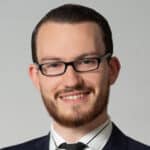
Daniel is the 2020 Foresight Fellow in Health & Longevity. His background is in structural biology, strengthened by a B.Sc. in biochemistry (University of Tuebingen, Germany, 2014) and a M.Sc. in biophysics (ETH Zurich, Switzerland, 2016) with distinction, enabled him to understand biological processes down to the atomic level. During his doctoral work with Dr. Martin Fussenegger at ETH Zurich, Daniel employed these fundamental insights to genetically re-engineer human cells for therapeutic purposes. Creatively using the principles of synthetic biology, he designed new proteins with a dedicated function – such as a novel caffeine receptor – and used these intricate tools to develop potent new cell-based therapies for diabetes mellitus and Parkinson’s disease. Further, Daniel was distinguished by several prestigious fellowships, such as the Excellence Scholarship and Opportunity Program of ETH Zurich and by the German Academic Scholarship Foundation, as well as in the form of a Selected Young Scientist at the 68th Lindau Nobel Laureate Meeting, an honor extended to the 600 most promising biomedical scientists worldwide. As a postdoctoral fellow with Dr. James J. Collins at the Wyss Institute for Biologically Inspired Engineering at Harvard University, Daniel harnesses the potency of cutting edge machine learning techniques to elucidate the biological functions of glycans since September 2019. Daniel was the first researcher to devise, develop, and apply methods derived from artificial intelligence to glycans and begin to tame their astounding complexity. In 2020, Daniel, was selected to be part of the prestigious Branco Weiss Fellowship – Society in Science 2020 Fellows, and as such was awarded $106,000 annually for five years to work on connecting machine learning and glycobiology, towards unveiling the inner workings of biology and facilitating biomedical therapies of tomorrow.
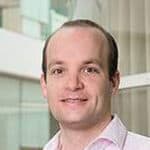
Joris Deelen is leading the research group on Genetics and Biomarkers of Human Ageing at the Max Planck Institute for Ageing Research. The group studies the genetic mechanisms underlying healthy ageing in humans by investigating the effect of genetic variants that are unique to long-lived families on the functioning of pathways implicated in ageing and/or age-related diseases. Moreover, they try to identify and validate biomarkers of healthy ageing using data from large-scale international collaborations of human studies.
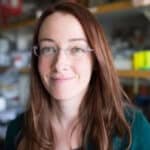
Kristen leads BIOAGE in its mission to develop a broad pipeline of therapies that target aging in order to increase healthspan and address chronic diseases. Kristen draws from a deep background in aging research and systems biology to develop BIOAGE’s data-driven approach to identify and target the molecular pathways that drive aging. Kristen received her PhD in Medical Biophysics from the University of Toronto, followed by postdoctoral training at Stanford University where she was a fellow of the Ellison Medical Foundation / American Federation for Aging Research. She has over 10 years of experience developing novel bioinformatics approaches for data-driven investigation into the mechanisms of aging and age-related disease, with 18 published papers spanning computational drug discovery, biomarkers of aging, and the genetics of exceptional human longevity.
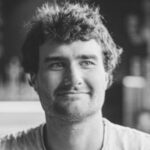
Felix received a B.Sc. and a M.Sc. in physics at Linköping University in Sweden, followed by a Ph.D. in chemistry at the University of Basel. His master’s thesis, which was later published in the International Journal of Quantum Chemistry, was one of the first works that demonstrated successful learning of crystal formation energies. Felix developed machine learning techniques for modeling fundamental quantum mechanical properties. Such properties include energies, forces, and dipole moments of crystals and molecules. In one of his first Ph.D. projects, which was published in Physical Review Letters, Felix used a machine learning model to predict formation energies of almost 2 million Elpasolite crystal structures. This model was also used to identify around 90 potentially thermodynamically stable structures. He was also among those who pioneered the use of quantum mechanical operators directly on machine learning models, which results in improved performance and is a stepping stone towards universal machine learning modeling of quantum mechanical properties. Additionally, Felix dedicated parts of his Ph.D. to benchmarking and comparing the performance of different machine learning models. In one such example Felix and his team, in collaboration with scientists from google, performed one of the most comprehensive comparisons of different machine learning models to date. Felix envisions a research framework where these techniques could be harnessed to understand and model biological and materials systems of varying complexity. Such fundamental models could be used to develop therapeutics, as well as new materials tailored for exhibiting specific properties. To those ends, Felix recently started a postdoctoral fellowship at the University of Cambridge, where applying the models that he developed during his Ph.D. to discover new drugs and materials.

Margaretta Colangelo is a native San Franciscan with over 30 years of experience working in the software industry in Silicon Valley. She has a deep and multifaceted understanding of business, science, and technology, and is highly adept at tracking and forecasting innovation in technology. She has published over 200 articles on AI , DeepTech, and Longevity. Margaretta is Co-founder and CEO of Jthereum an enterprise Blockchain company and serves on the advisory boards of the AI Precision Health Institute at the University of Hawaii Cancer Center, NaNotics, Robots Go Mental. and on the Executive Board of Directors of the Bring Hope Humanitarian Foundation. She serves on the advisory board of the The Alliance for Longevity Initiatives and is a mentor to company founders in the Foresight Institute Biotech and Health Extension Accelerator. Margaretta has been at the forefront of emerging technologies throughout her entire career. In the 1990s she was a core member of the team that developed the first Java based secure messaging software for stock trading platforms used by the world’s top multinational investment banks, and influenced important technical specifications and standards, including JDBC and JMS, that have helped advance the technology industry. Margaretta’s articles have been published multiple times in Forbes, MIT Technology Review Italia, International Journal of Infectious Diseases, Health Management Journal, Outsourcing Pharma, Pharmaceutical Executive, Healthcare IT News, Bahrain Entrepreneur, Asian Robotics Review, and The American Journal of Translational Medicine. Margaretta publishes weekly newsletters on DeepTech, Longevity, and FinTech with hundreds of thousands of subscribers across multiple platforms. Margaretta speaks at AI conferences in the US, Mexico, Brazil, Singapore, Switzerland, Sweden, Portugal, Saudi Arabia, and Oman.
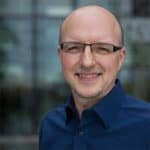
Petr Sramek is Managing Partner of Longevitytech.fund and co-founder of LongevityForum.eu. He is a serial entrepreneur in deep tech for more than 30 years. Petr is building science, funding and business infrastructure to support faster adoption of health-span improving technologies. Petr was Entrepreneur in Residence at Singularity University, co-founder of the Platform on Artificial Intelligence at the Confederation of Industry, AI Startup Incubator founder and a Senator for the Czech Republic in the World Business Angels Investment Forum (WBAF). Petr is also the founder of the AI Awards project. Petr has been featured in the group of 28 AI leaders in the flagship World Intellectual Property Organization study.
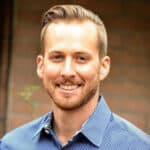
Arye is a General Partner at MarsBio, a seed stage venture fund based in Los Angeles, investing in deeptech and biotech companies. He holds a degree in Molecular and Cellular Biology from UCLA, and has a background in biotech R&D and drug development, entrepreneurship, and angel investing. He serves as a board member and advisor for various life sciences startups and accelerator programs in Southern California, including Empath Ventures, Lab Launch, and Larta Institute.
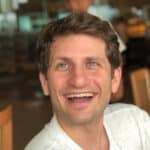
I’m a serial entrepreneur and software engineer with an academic background in neuroscience; sold four companies and built products reaching over 80 million users in gaming, edtech and e-commerce. My core strength lays at the intersection between behavior and technology, especially informed by design and behavioral economics. In context of my general interest in technological innovation, I’m particularly passionate about curing aging and consider current health paradigms and narratives to be mostly upside down. In that vein, I am dedicating increasingly more resources to raise the tide of progress. I enjoy investing in and advising early stage startups. Some recent investments include: Novos, Loyal, Vital Health, Olive Health, Kingdom Supercultures.
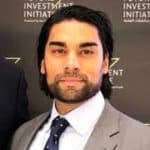
Venture Partner, Head of Innovation – Founder, CEO of Oncolinx – Strategy at Celularity – Forbes’ “30 Under 30: Healthcare” – World Economic Forum Global Shaper – Singularity University Global Solutions Program – Dartmouth College

Alexandra is leading the venture creation programs that aim at founding new biotech startups targeting the aging process at a molecular level. She is also managing the pipeline and diligence process for external investment opportunities, predominantly focusing on preclinical stage biotech companies. Before joining Apollo Ventures, Alexandra worked with The Boston Consulting Group where she specialized in biopharma strategy, market assessment and asset diligence. Her PhD studies at Harvard Medical School were focused on investigating the molecular mechanisms that contribute to cellular aging and could be targeted to increase mammalian health span. She is also a trained pharmacist with expertise in pharmaceutics and pharmacology.

I am a medical doctor, bioinformatics researcher and healthcare entrepreneur. My current roles as a Partner at the SALT Bio Fund & Chief Scientific Officer of HOOKE allow me to utilise my passion to help build companies that bring new piece of science or technology to the people with the aim of improving their health & longevity. My research at Hooke and at the Buck Institute is focused on standardising all novel surrogate biomarkers of aging and intervention that can help people live longer, happier and healthier lives by compressing th number of years spent in bad health (morbidity) and increasing helathy life expectancy. I workd at Guy’s and St Thomas’NHS Foundation Trust, qualified from UCL Medical School, London, UK and had research posts at Massachusetts General Hospital, Harvard, USA and King’s College London. My work is in the field of computational medicine focused on preventive cardiology and aging, but I also enjoy extending my research principles to a wider application of artificial intelligence in healthcare.
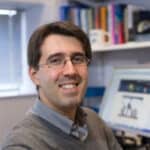
Ageing has a profound impact on human society and modern medicine, yet it remains a major puzzle of biology. The goal of my work is to help understand the genetic, cellular, and molecular mechanisms of ageing. In the long term, I would like my work to help ameliorate age-related diseases and preserve health. No other biomedical field has so much potential to improve human health as research on the basic mechanisms of ageing. Please visit our lab website for further details about our work and publications, or see my TEDx talk.